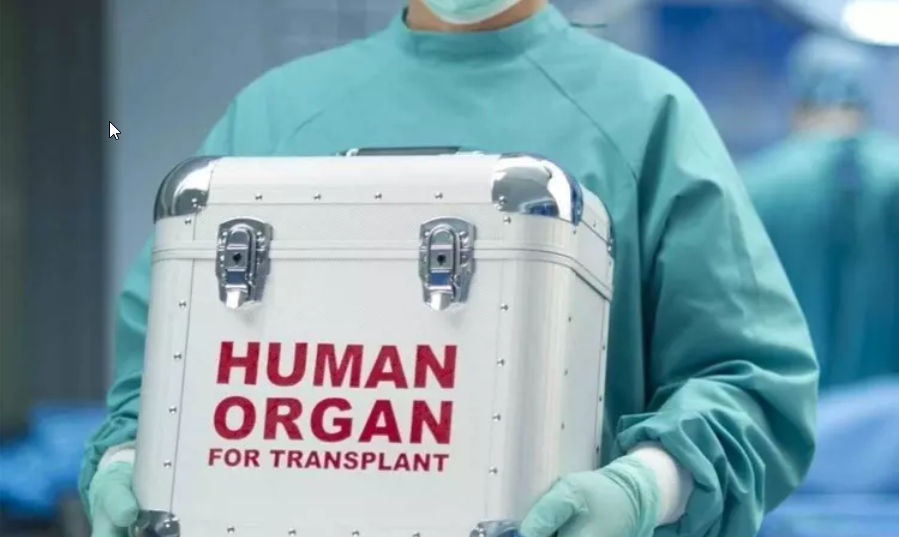New Delhi, August 12, 2024: India faces a significant challenge in bridging the gap between the need for organs and their availability, with the country's cadaver organ donation rate remaining abysmally low at less than one donor per million populations per year. A critical factor contributing to this shortage is the failure of hospitals to promptly identify and certify brain deaths, despite the presence of potential donors. As the Union Health Ministry recently emphasized in a directive, timely action by hospitals could save countless lives by facilitating the organ donation process. Urging immediate action, experts emphasized that hospitals need to act swiftly to declare brain deaths. This act can boost organ donation rates, they said.
Neurologists play a pivotal role in the organ donation process by identifying and certifying brain deaths in a timely manner. “Brain death, a condition where there is a complete and irreversible loss of brain function, is legally recognized as death in India. If we promptly identify and certify brain death, it allows the hospital to quickly initiate the organ donation and transplant process. This swift action is crucial, as it ensures that the organs remain viable for transplantation, thereby increasing the chances of successful transplants,” said Dr.
Praveen Gupta, Principal Director & Chief of Neurology, Fortis Hospital, adding, “The timely identification of brain death is critical for organ donation. As neurologists, we must be vigilant in diagnosing brain death and ensuring that the process is documented swiftly. This allows the medical team to inform the family about the possibility of organ donation, which could save multiple lives."
Organ donation is a life-saving process that can significantly reduce mortality rates in India. The need for organs far outweighs the supply. The deficit means that many patients die waiting for an organ transplant that could have saved their lives.
Union Health Secretary, Apurva Chandra recently underpinned the need to enhance awareness about organ donation and stressed that “to ensure that there is no organ wastage, we must strengthen our system. When we receive any brain-dead person, the time is less and we have to harvest the organs in 12 hours and the transplant has to happen within a short window. Hence, we have to improve our systems and it's a big responsibility for NOTTO, SOTTO and ROTTO.
Dr. Ravi Bansal, Senior Consultant Department of Nephrology, PSRI Hospital, New Delhi explained a kidney transplant has a profound impact on the life of a renal failure patient. It improves the longevity and quality of life of these patients and helps them live a normal socially productive life. But this is only possible if there is a donor available to donate a kidney. A kidney can be donated either by family relatives or from a brain death donor, like in accident cases. Kidney donation is a noble act and does not affect the life of the donor"
The high success rate of organ transplants, particularly kidney transplants, underscores the importance of organ donation. A successful kidney transplant can significantly improve the quality of life for patients with renal failure, allowing them to lead healthier, more productive lives. Additionally, the availability of more kidneys for transplantation can reduce the demand for dialysis, which is a resource-intensive and costly procedure. This, in turn, alleviates pressure on the healthcare system, making it more sustainable in the long run.
The Health Ministry's recent directive to hospitals highlights the urgent need for change. The ministry reminded states that, as per the Transplantation of Human Organs and Tissues Act, hospitals must identify every potential brain stem death case admitted to the ICU. It is mandatory for hospitals to inquire whether potential donors had pledged to donate their organs and, if not, to make the family members aware of the opportunity to donate organs before the heart stops beating.
Dr. Mrunmaya Kumar Panda, Sr.Consultant - Hepatology and Gastroenterology, Jupiter Hospital, Pune, emphasized the importance of hospital protocols in improving organ donation rates: "Onus lies not only on donors but hospitals also. We need to be proactive in declaring brain deaths and initiating the organ donation process. The delay in identifying brain deaths often leads to missed opportunities for saving lives. With the right protocols in place, we can significantly increase the number of organs available for transplantation."
India needs all transplant centers and non-transplant organ retrieval centers to start declaring brain deaths promptly. This will significantly boost organ donation rates and save countless lives. Currently, even registered transplant centers are lagging in declaring brain deaths, leading to a significant loss of potential donors. India needs to speed up efforts to enforce stricter protocols and raise public awareness for creating a robust organ donation ecosystem.

 India needs all transplant centers and non-transplant organ retrieval centers to start declaring brain deaths promptly. This will significantly boost organ donation rates and save countless lives.
India needs all transplant centers and non-transplant organ retrieval centers to start declaring brain deaths promptly. This will significantly boost organ donation rates and save countless lives.










.jpeg)



.jpg)





.jpeg)

.jpg)





.png)

